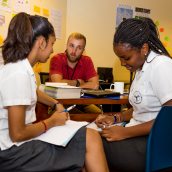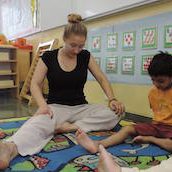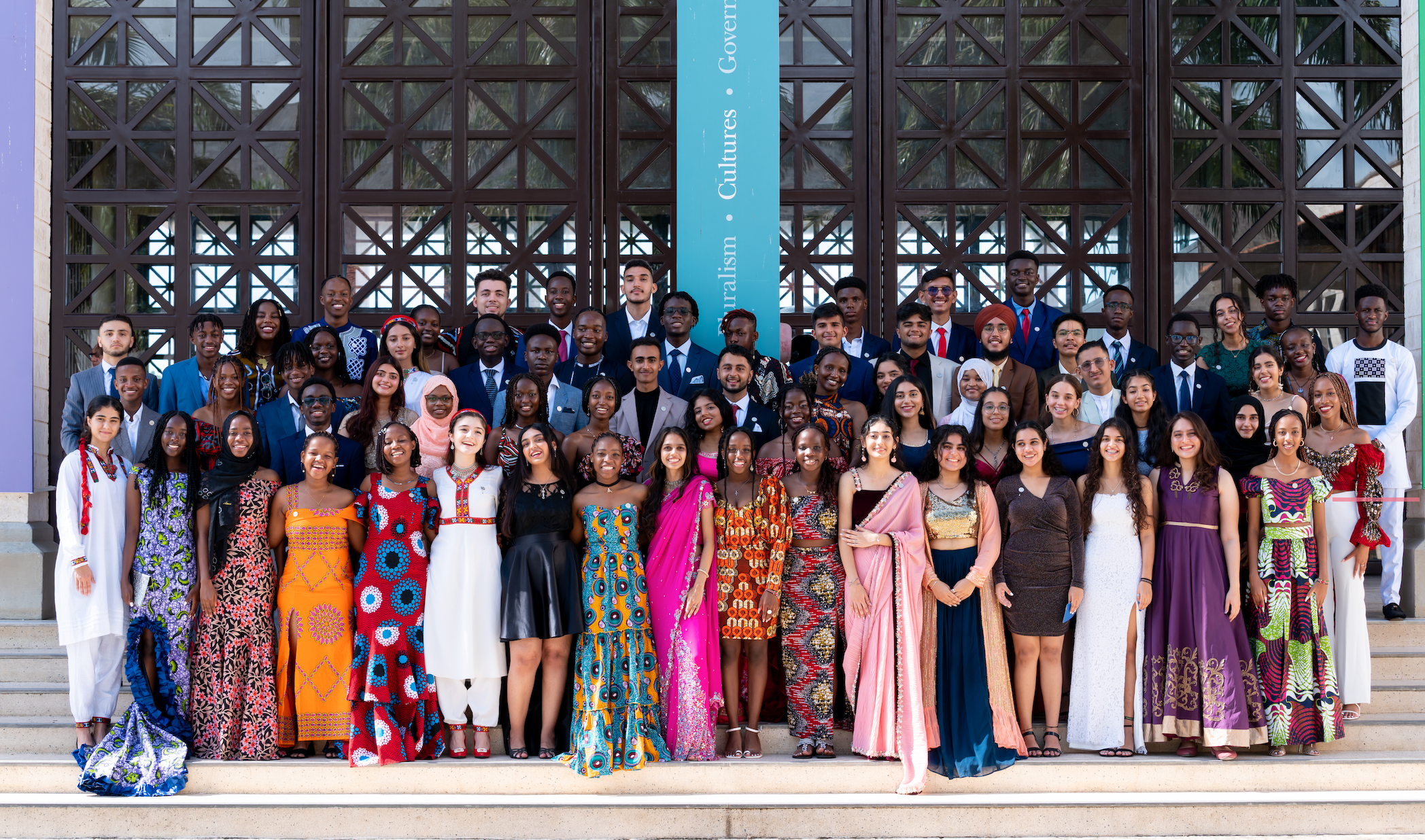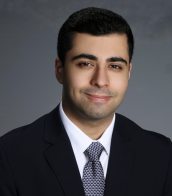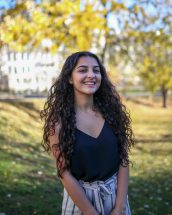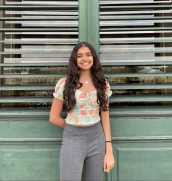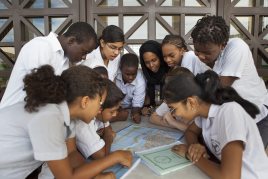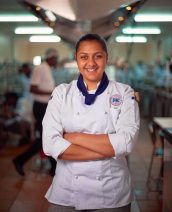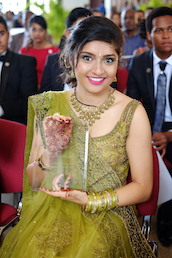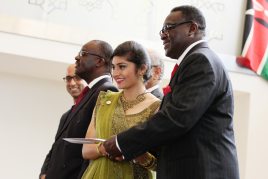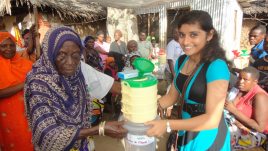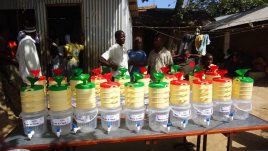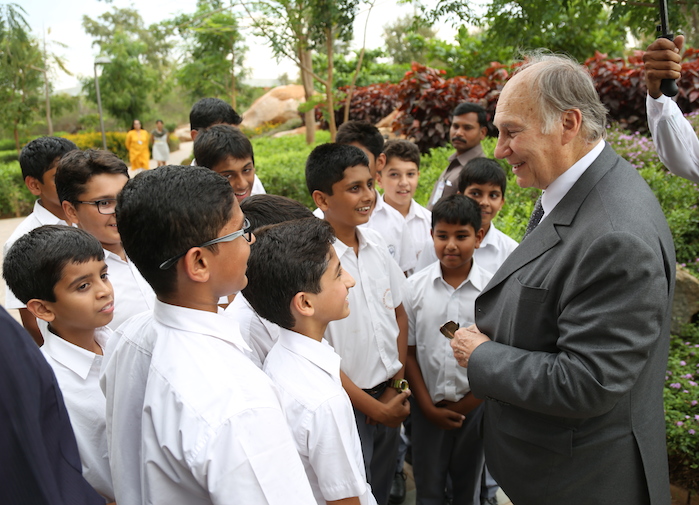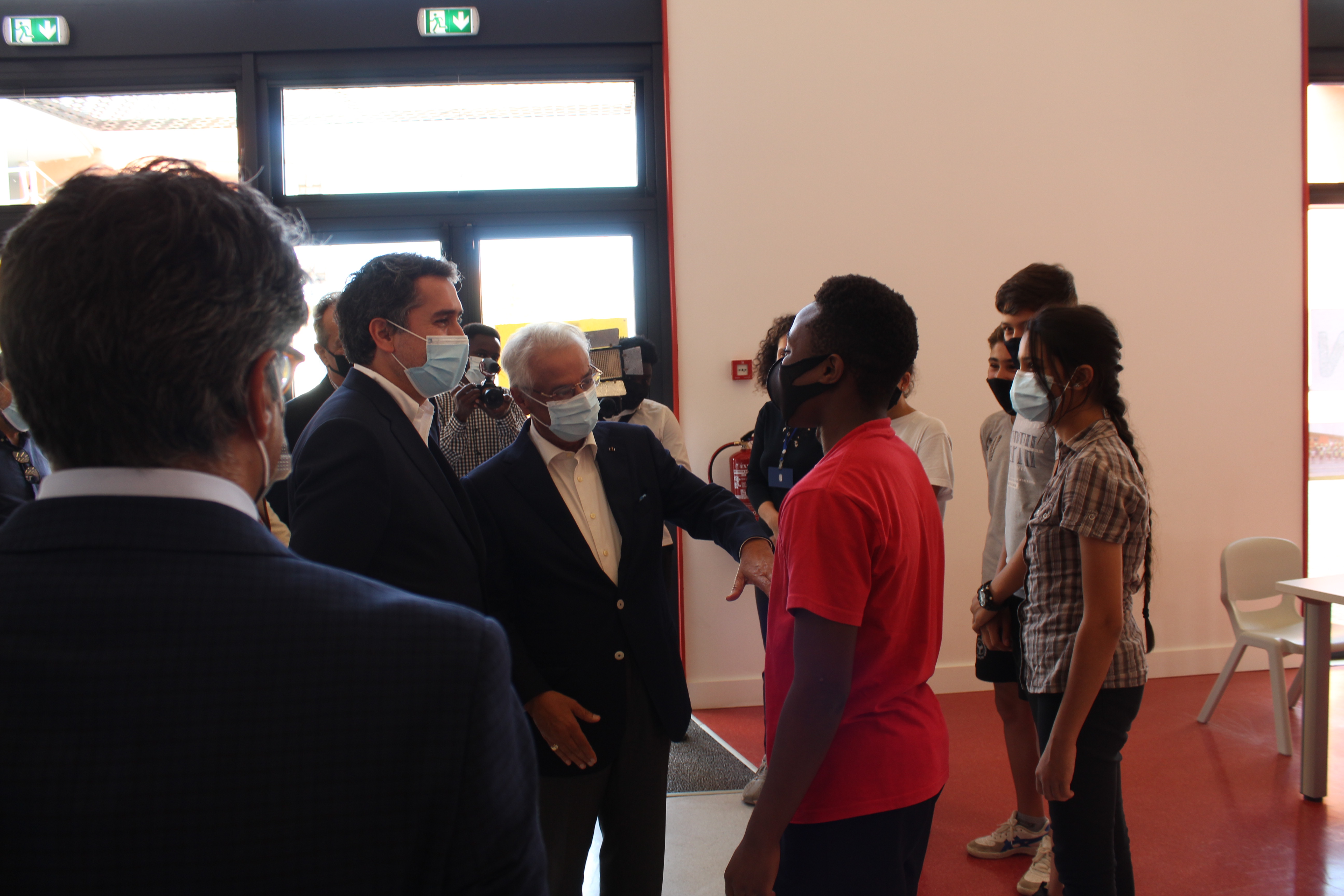At the Aga Khan Academy Mombasa, Ham Serunjogi – CEO and co-founder of African fintech giant Chipper Cash – realised the importance of staying connected to something larger than himself. The Forbes 30 Under 30 honouree is now serving as an advisor to the US President on African diaspora engagement.
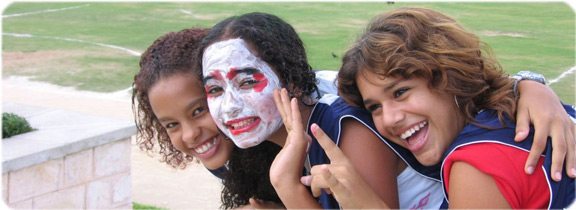
Clone of Academy Fellows
With the aim of bringing diverse perspectives and fresh energy to the Aga Khan Academies, a small number of carefully selected recent graduates from well-respected universities are recruited each year to serve as Aga Khan Academy Fellows.
How can I become part of the Academy Fellow's Programme?
To find out more and submit your application, please visit the AKDN Career Centre
Applications are now open for opportunities in Kenya, India and Mozambique for 2020
What is the Fellows Programme at the Aga Khan Academies?
Academy Fellows have the opportunity to work with gifted and talented students from diverse ethnic, religious and socioeconomic backgrounds. Each Academy Fellow will live on campus and serve the student residential programme as a Dorm Parent promoting community life.
Academy Fellows have a demanding and important role in our community and may be responsible for any of the following, depending on the Fellow’s interests and experiences and the Academy’s needs:
- Key role as a Dorm Parent in the residential programme, which includes weekday duties and weekend duties.
- Assistance in a specific curricular area under the mentorship of an experienced master teacher.
- Tutoring individual students or study groups.
- Involvement in the administrative work of departments such as Admissions, Communications or University Counselling.
- Coaching sports and athletic teams, providing music lessons, SAT prep, artistic pursuits.
An integral part of the residential programme at the Academy, the Fellows participate actively in and chaperone off campus field trips, engage in the enrichment programmes (sports, arts, ...) and are closely involved in the student leadership development programme, including activities such as Model MUN, TedX etc.
These opportunities are offered at all our Academy campuses: Mombasa, Kenya, Hyderabad, India and Maputo, Mozambique - Future Academies are planned across Africa, South and Central Asia, and the Middle East.,In which parts of the world can I hope to serve as a Fellow?
Fellows can indicate a preference when applying.
Is this a permanent role or can I come just for a few months or a year?
These will be two-year appointments, overlapping so as to assure continuity. Some Academies will consider one year appointments but prefer a longer commitment.
What are we looking for in our Fellows?
- Genuine interest and commitment to the mission of the Aga Khan Academies and to the development of young people.
- A record of excellent academic achievement at a highly respected college or university.
- A record of significant involvement in residential life, student leadership programming, music, athletic and/or community service during college or university.
The Fellow's programme also provides onsite mentoring and coaching by experienced faculty and staff and an opportunity to experience life in a lively and dynamic school environment.
Some Fellows may come from the AK Academies’ alumni body and others may decide to pursue a career in teaching or education in general.
Do you want to hear more about the programme?
Click here to read what some of our former Fellow have to say about their experience and see them in action.
To find out more and submit your application, please visit the AKDN Career Centre
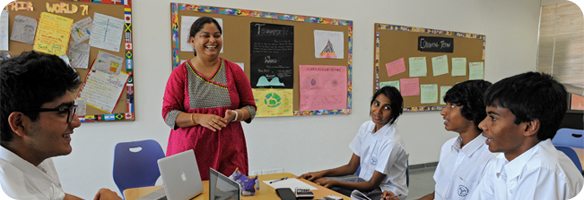
Job Opportunities
The Aga Khan Academy Hyderabad is committed to hiring the best educators and staff from within the local community, nationally and internationally. We welcome your interest in working with us and invite you to explore the opportunities available.
About the Aga Khan Academy Hyderabad
Set on a stunning 100-acre campus, south of the historic city of Hyderabad, the Aga Khan Academy Hyderabad is part of a network of Academies, which will soon form an inter-connected global learning community of 18 schools in 14 countries. Based on the vision of His Highness the Aga Khan, the Academy recruits exceptional students from diverse backgrounds irrespective of their ability to pay. Our holistic educational philosophy, International Baccalaureate curriculum and commitment to pluralism enables students to become ethical leaders who are empowered to make positive contributions in an ever-changing world. To find out more about the Academy, click here.
Working at the Aga Khan Academy Hyderabad
Here at AKA Hyderabad, we are united in the belief that education can be a force for good in the world. We look for outstanding educators whose work is characterised by passion, the ability to inspire others and make a difference, and work that is committed to helping students find their grand passion in life.
We recognise that the knowledge, skills and experience of our staff are a vital part of achieving our commitment to excellence. The Academy is strongly committed to continuing education for our faculty, and we provide regular opportunities for professional development.
The Academy is also proud to offer an outstanding work environment with excellent facilities, and a unique and diverse school community.
Current job opportunities
- Primary Years Programme teacher
- Art teacher (Primary Years Programme/Middle Years Programme)
- EAL specialist
- Math teacher (Middle Years Programme/Diploma Programme)
- Humanities teacher (Middle Years Programme/Diploma Programme)
How to apply
- CV (two pages)
- Cover letter (one page)
- Two references and their contact information
- A 250-300 word personal statement on how the Academy's vision and values find expression in your own life and teaching.
For more information on each of the vacancies, visit the AKDN Career Centre. Listings are updated regularly, so be sure to check back often.
Alumni
Education at its best facilitates positive growth in all domains – intellectual, social, physical, ethical and spiritual – leading to the well-rounded development of the child. The Aga Khan Academies aim toward this ideal, and the values they espouse are reflected in each school’s aspirations for its students.
The vision for Aga Khan Academy graduates
Students at an Academy pursue a well-balanced education combining intellectual inquiry, academic excellence, sporting and cultural activities, and a grounding in ethics and moral reasoning.
They are committed to rigour and self-discipline in their studies and subscribe to the principles of intellectual honesty in the preparation of their work.
Read more here.
The Aga Khan Academy Alumni Network
Fill out the AKA Alumni online questionnaire here
Connect with us via our Facebook and Instagram pages.
Interested to know more about our graduates? See spotlights on our alumni
Karishma Bhagani (Class of 2015): Making a splash for clean water
Look below for a video of Karishma speaking at the Passion in Science Awards.
Last year, 20-year-old Karishma Bhagani of Mombasa, Kenya was awarded a seed grant at the NYU Reynolds Changemaker Challenge, beating out eight other teams and 46 other projects. Bhagani won the seed grant for an innovative water purification system that makes the most of natural resources in cash-strapped communities that need clean water. Her initiative, Matone De Chiwit, came about as a solution to a problem she noticed: more and more diseases were emerging as a result of fluctuating weather in the country, ranging from floods to drought conditions. She knew that something had to be done.
Matone De Chiwit means “drops of life” in three different languages. Matone means drops in Kiswahili (Kenya), de means “of” in Spanish (Latin America) and chiwit means “Life” in Thai (Thailand). These three languages represent the three parts of the world that suffer the most from clean water scarcity. It also speaks to the global nature of her venture, as Bhagani intends to expand her project to these three regions and beyond.
Aga Khan Academy as an Inspiration
Bhagani is a fourth-generation Kenyan who recently moved to New York City where she is studying drama, history and South Asian studies at New York University. The Aga Khan Development Network has always been a part of her life as she was one of 17 students at the Aga Khan Academy in Mombasa who made up the first class to have been educated from pre-school to IB graduate.
The biggest lesson that Bhagani drew from her education is to be a holistic student. She strives to be as well rounded as possible, striking a balance between a social life, sleep, work and school, all with the goal of making a global impact. This pursuit of balance was inspired by her many years at the Aga Khan Academy.
“I think that at the end of the day what everything comes down to is how we can be citizens of the world and how we can change the world that we live in to make it a better place for ourselves and children that follow us. And part of that also means giving back to your own community,” said Bhagani.
When she was in middle school, she was required to carry out a personal project on something that inspired her. Having noticed the drastic fluctuations of weather and rampant diseases in her country, Bhagani decided that she would come up with an innovative water purification system that uses readily accessible natural resources. Her initiative uses locally available materials – sand, gravel, charcoal and cotton cloth – to purify water for villagers all across Kenya. The initial version of the product also used chlorine tablets called Aquapur. Bhagani received generous sponsorship funding from Davis & Shirtliff, a local water supply company, for donating 20 units to a community to test for effectiveness. “A lot of the families said that the water was ‘tamu sana’ which in English means very sweet,” said Bhagani.
Before Bhagani came up with her product, local families were typically just drinking untreated water, using a lot of energy to boil it on charcoal-heated stoves or using Aquapur chlorine tablets.
Testing and Improving
Through testing and implementation in villages, Bhagani and her partners came to the realization that using chlorine in a plastic container might not be the best idea. These tablets can actually be dangerous to human health — high doses can be potentially harmful as the plastic in the bottles reacts with the chlorine, resulting in the spread of more serious illnesses. So they decided to change it to moringa oleifera, essentially dried seed kernels of drumstick tree powder. Then, she carried out a lot of testing by collaborating with the Coast Water Services Board. She found that the new version worked just as well as the chlorine unit did.
When she was in the IB program at the Academy, she had the opportunity to take her unit to the Golden Climate International Environment Project Olympiad. That’s where she carried out even more research and testing to modify and improve the system. Her project ended up advancing to the national round, then the international round, where she won gold in its category.
It was at this point that she decided to patent the product. She applied before starting at NYU and received the patent while she was a first-year student.
Why Matone De Chiwit?
What sets Matone De Chiwit apart from competitors is that the device is both chlorine-free and cost-effective. Since it’s made up of natural resources common in rural Kenya and other parts of Africa, they can be replaced easily, which means users don’t have to rely on Matone De Chiwit to replenish the filter. Charcoal is easily found and other ingredients, like the drumstick tree powder, can be grown in their backyards. Additionally, Moringa olifeira grows in a variety of climates and doesn’t need much water to grow.
In terms of cost, it’s much cheaper in the long-term than what is currently used. Even so, Bhagani intends to ensure it’s affordable for rural villages by applying for sponsorship and grant funding from large companies all over Europe and North America. Her venture is also bridging the gap from the city to the village, because she is working with people from each of those communities and bringing them together to achieve clean water and sanitation for all.
The Future
With the seed grants that Bhagani recently received, including the Reynolds grant, she plans to carry out her first beta testing. The biggest challenge for her at the moment is having an adequate source of funding to collect data.
“It’s kind of a chicken-and-egg situation because we need more evidence of this product working in practicality in communities so that we can apply for more grants to sustain us, but without the grants it’s difficult to go out into the communities to actually grow these projects with that seed money,” said Bhagani.
With the little funding that she currently has received, she plans to establish the purifiers in at least two or three communities. Bhagani will continue checking on the units to get enough data so she can apply for larger grants and potentially work with philanthropies like the Gates Foundation. She also hopes to conduct more research on its effectiveness through beta testing in communities.
“In five years’ time, I hope to have conducted at least ten beta tests in Mombasa, and have expanded the venture all across Kenya. My intention is to begin applying for larger grants by that time so that we can expand to other countries around the world,” said Bhagani.
Additionally, she plans to collaborate with other Aga Khan academies in Hyderabad, India and Maputo, Mozambique. That collaboration could build on student organizations that can work with the rural communities that they already engage with.
Her long-term plan is to create a sustainable community, which not only bridges the urban/rural divide but also allows families to provide for themselves.
This spotlight is republished courtesy of AKF USA.
